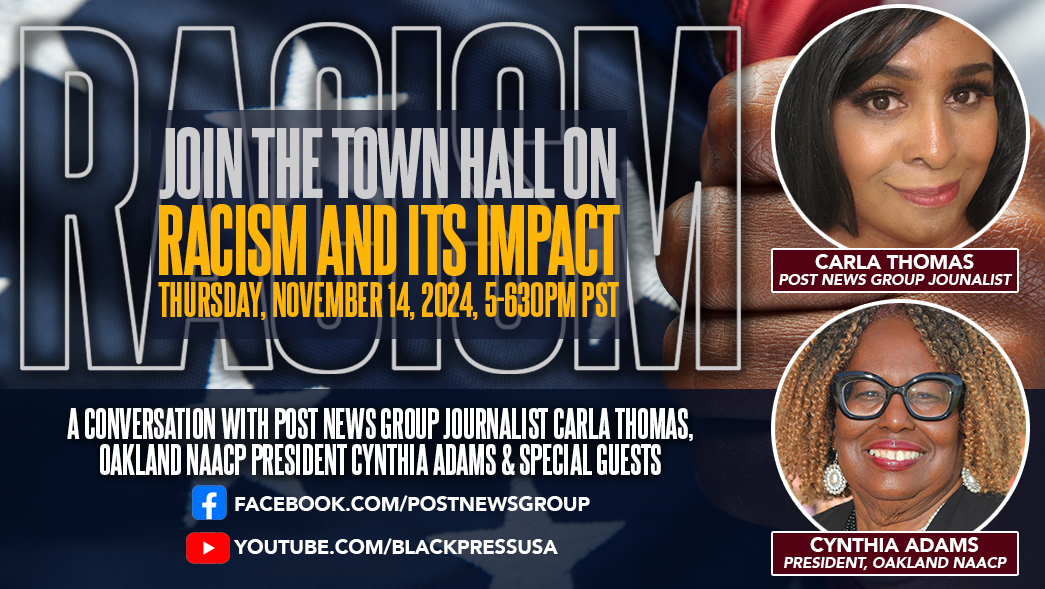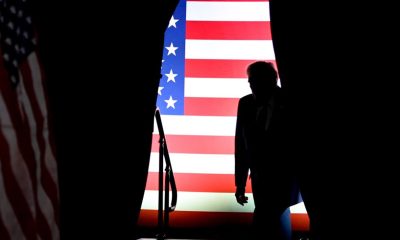Environment
UCSF Scientist Launches Drive to Halt Tobacco Sales in Drugstores
By Elizabeth Fernandez, UCSF News
Pharmacies, focused on the health and wellbeing of their customers, have long been saddled with a paradox: they sell cigarettes and other tobacco products, even though tobacco use is the nation’s leading cause of preventable death.
If retailers, particularly pharmacies, were to discontinue selling cigarettes, fewer smokers and fewer deaths by smoking would occur, according to a new opinion article co-written by a UC San Francisco scientist.
< p>That’s also the premise behind a new decision by CVS Caremark, the nation’s largest pharmacy health care company, to end cigarette and tobacco sales in its stores this year.
In a Viewpoint article published online today in JAMA, the Journal of the American Medical Association, the authors say that selling tobacco products is “clearly antithetical” to the role of pharmacies, especially as pharmacies expand their role as an integral part of the nation’s health care system.
The JAMA Viewpoint is written by Troyen A. Brennan, MD, MPH, executive vice president and chief medical officer of CVS Caremark; and Steven A. Schroeder, MD, a UCSF professor and director of the Smoking Cessation Leadership Center.
Casting a harsh light on tobacco sales in drugstores, the authors say that selling tobacco products contradicts a commitment to health care.
The goal of the authors: eliminate tobacco sales in America’s drugstores.
“Nowhere else in health care are tobacco products available in the same setting where diseases are being diagnosed and treated,” they write.
The CVS decision will cost the company an estimated $1.5 billion in annual tobacco sales, according to the JAMA article.
Initially, the move to eliminate tobacco sales by CVS may not entice significant numbers to quit smoking – instead, customers may go elsewhere to buy cigarettes, the authors say. But if other retailers followed suit, tobacco products would become harder to obtain, the authors write, and thus the health of individuals and the population would benefit.
“Moreover, if people understood that retail outlets that plan to promote health, provide pharmacy services, and house retail clinics are no longer going to sell tobacco products, the social unacceptability of tobacco use will be substantially reinforced,” the physicians write. “Indeed, the continued sale (of cigarettes) would appear to sanction the most unhealthy habit a person can maintain.”
Noting that pharmacies in other developed countries do not sell cigarettes, the authors maintain that if drugstores don’t make this effort voluntarily, federal or state regulatory action would be appropriate.
Others have endorsed the elimination of tobacco sales in pharmacies. Among them, the American Pharmacists Association in 2010 called for the discontinuation of sales and the end to license renewals of pharmacies that sell the products. The American Heart Association, the American Cancer Society and the American Lung Association called for a ban on tobacco sales in pharmacies, and the American Medical Association passed a resolution opposing tobacco sales in products.
Moreover, some cities have already banned tobacco sales in pharmacies, including San Francisco and Boston.
The toll from smoking is monumental. Smoking is attributed to the deaths of more than 480,000 people in the United States annually, and costs $132 billion in direct medical costs, the physicians write, depicting it as “one of the most important public health challenges of the 21st century.”
During the last 40 years, tobacco control efforts, including cigarette taxes, smoke-free legislation, and a growth in smoking cessation programs, have reduced the prevalence of smoking in the U.S. from approximately 42 percent of American adults in 1965 to 18 percent today.
“Yet more interventions are needed,” the scientists write in the JAMA article. “The rate of reduction in smoking prevalence has stalled in the past decade, 42 million people continue to smoke, and 16 million current and former smokers suffer from smoking-related illness.”
Studies have demonstrated a relationship between smoking and geographic density of stores that sell cigarettes, the authors say, noting that reducing the number of tobacco outlets will likely reduce smoking among young people – an additional benefit.
California Black Media
Gov. Newsom Goes to Washington to Advocate for California Priorities
Gov. Gavin Newsom traveled to Washington, D.C., for meetings with senior Biden-Harris Administration officials and members of California’s congressional delegation. During the week, he pushed for increased resources to improve public safety and quality of life in California.

By Bo Tefu, California Black Media
Gov. Gavin Newsom traveled to Washington, D.C., for meetings with senior Biden-Harris Administration officials and members of California’s congressional delegation.
During the week, he pushed for increased resources to improve public safety and quality of life in California.
“California is continuing our work to secure additional tools and resources to improve access to health care, clean air and water, and secure critical funding to support communities recovering from disasters,” said Newsom.
At the White House, Newsom met with President Joe Biden and key officials, advocating for disaster relief funding, healthcare expansion, and environmental protection. He also engaged in discussions with senior Biden-Harris officials, including Interior Secretary Deb Haaland, to address water quality improvements and the San Luis Dam project, which will support water supplies for two million Californians.
“Building on our strong partnership with the Biden-Harris Administration, California is working closely with the White House over the next two months to deliver the critical protections and resources our communities need,” Newsom said.
On Capitol Hill, Newsom met with California Senators Alex Padilla and Adam Schiff, along with other Congressional leaders, to emphasize the need to approve pending disaster funding, healthcare programs, and environmental protections. He also previewed California’s upcoming special session to proactively address potential federal challenges when President-elect Donald Trump is sworn into office.
Newsom’s discussions also focused on securing Medicaid waivers from the Center for Medicare & Medicaid Services (CMS) to enhance behavioral health services and reduce homelessness. The state seeks approval for the BH-CONNECT waiver, which would address behavioral health and homelessness, and the MCO Tax Waiver, which would provide over $20 billion for Medi-Cal to improve healthcare access.
Additionally, California is pushing for Clean Air Act waivers from the U.S. Environmental Protection Agency (EPA), which are crucial for enforcing air quality regulations. These measures are projected to prevent 11,000 premature deaths and provide $116 billion in health benefits over the next three decades, according to the Governor’s office.
Activism
LIVE! — TOWN HALL ON RACISM AND ITS IMPACT — THURS. 11.14.24 5PM PST
Join us for a LIVE Virtual Town Hall on the Impact of Racism hosted by Post News Group Journalist Carla Thomas and featuring Oakland, CA NAACP President Cynthia Adams & other Special Guests.
Thursday, November 14, 2024, 5 p.m. – 6:30 p.m. PST


Join us for a LIVE Virtual Town Hall on the Impact of Racism hosted by Post News Group Journalist Carla Thomas and featuring Oakland, CA NAACP President Cynthia Adams & other Special Guests.
Thursday, November 14, 2024
5 p.m. – 6:30 p.m. PST
Discussion Topics:
• Since the pandemic, what battles have the NAACP fought nationally, and how have they impacted us locally?
• What trends are you seeing concerning Racism? Is it more covert or overt?
• What are the top 5 issues resulting from racism in our communities?
• How do racial and other types of discrimination impact local communities?
• What are the most effective ways our community can combat racism and hate?
Your questions and comments will be shared LIVE with the moderators and viewers during the broadcast.
STREAMED LIVE!
FACEBOOK: facebook.com/PostNewsGroup
YOUTUBE: youtube.com/blackpressusatv
X: twitter.com/blackpressusa
Business
Gov. Newsom Issues Executive Order to Tackle Rising Electric Bills
Gov. Gavin Newsom has issued an executive order to help alleviate the financial burden of skyrocketing electric bills on residents. This directive instructs the state’s Public Utilities Commission (PUC) and Energy Commission to identify strategies to lower electricity costs and prevent rapid increases in the future.

By Bo Tefu, California Black Media
Gov. Gavin Newsom has issued an executive order to help alleviate the financial burden of skyrocketing electric bills on residents. This directive instructs the state’s Public Utilities Commission (PUC) and Energy Commission to identify strategies to lower electricity costs and prevent rapid increases in the future.
Among the key actions proposed, the governor emphasized a closer examination of utility expenditures related to wildfire mitigation, which accounts for about 13% of residential electric bills.
Newsom underscored the state’s commitment to balancing affordability with environmental goals.
“We’re taking action to address rising electricity costs and save consumers money on their bills,” said Newsom. “California is proving that we can address affordability concerns as we continue our world-leading efforts to combat the climate crisis.”
California now has the second-highest electric rates in the country, trailing only Hawaii, with residential bills having surged as much as 110% over the past decade. The largest utilities, including Pacific Gas & Electric, Southern California Edison, and San Diego Gas & Electric, have seen rate hikes of 20% to 50% in just the last three years, approved by the state’s regulatory bodies.
The executive order also directs the California Air Resources Board (CARB) to explore increasing the California Climate Credit, which provides some relief on energy costs for residents. Additionally, the PUC is urged to pursue federal funding opportunities to further reduce electric expenses.
While consumer advocates welcomed the governor’s focus on lowering costs, concerns were raised regarding potential cuts to essential clean energy programs. CALPIRG, a consumer group, pointed out that the real issue behind high utility bills is wasteful spending by utilities and urged greater accountability.
-

 Activism4 weeks ago
Activism4 weeks agoOakland Post: Week of November 20 – 26, 2024
-

 California Black Media3 weeks ago
California Black Media3 weeks agoCalifornia to Offer $43.7 Million in Federal Grants to Combat Hate Crimes
-

 Activism4 weeks ago
Activism4 weeks agoAn Inside Look into How San Francisco Analyzes Homeless Encampments
-

 Black History3 weeks ago
Black History3 weeks agoEmeline King: A Trailblazer in the Automotive Industry
-

 California Black Media3 weeks ago
California Black Media3 weeks agoCalifornia Department of Aging Offers Free Resources for Family Caregivers in November
-

 California Black Media3 weeks ago
California Black Media3 weeks agoGov. Newsom Goes to Washington to Advocate for California Priorities
-

 Activism3 weeks ago
Activism3 weeks agoOCCUR Hosts “Faith Forward” Conference in Oakland
-

 #NNPA BlackPress4 weeks ago
#NNPA BlackPress4 weeks agoPRESS ROOM: Clyburn, Pressley, Scanlon, Colleagues Urge Biden to Use Clemency Power to Address Mass Incarceration Before Leaving Office

























































